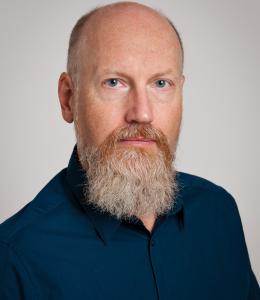
Dr Artur R. Boelderl
Digital Visiting Research Fellow, May - June 2025
Home institution: Robert Musil Institute for Literary Research/Carinthian Literary Archives
Artur R. Boelderl, Dr. phil. habil., is a “Universitätsdozent” (~ reader) at the Institute of Philosophy at the University of Klagenfurt, Austria, and a senior scientist in the Digital Edition department at the Robert Musil Institute for Literary Research/Carinthian LiteraryArchives there. The editor of MUSIL ONLINE (https://edition.onb.ac.at/musil) and an editorial member of RISS (https://zeitschrift.riss-psychoanalyse.de), his research focuses on philosophy and literature since the 20th century, philosophy and/or psychoanalysis, digital edition, literary education and mediation (online), and philosophical natology. Author of five monographs – most recently Musil, diskursweise (Brill/Fink: Leiden, Paderborn, 2024 [https://doi.org/10.30965/9783846768815]) – and editor of numerous volumes in the aforementioned disciplines, his most recent publication in English is “At the Boundaries of Birth, Love, and Death” (https://doi.org/10.1080/14797585.2024.2406399).
Project title: The Book Not to Come: How Digitization Affects Literary Research and Text Theory
An essential part of Austria’s cultural heritage, listed in UNESCO’s Memory of Austria, the literary estate of Robert Musil (1880-1942) has been among the earliest to receive digital editorial treatment. At par with other world heritage documents such as the philosophical estate of Ludwig Wittgenstein, it is linked in substance to the Documentary Heritage in the Digital Era. In this context, a special kind of data migration has been performed at RMI/KLA under the supervision of Musil’s chief editor W. Fanta and myself over the past two years: from the digital Klagenfurter Ausgabe on DVD-ROM (2009) in the proprietary format FolioViews, to an open-source XML/TEI version. This was done in constant exchange with the proprietor of Musil’s literary estate, the Austrian National Library, and accompanied by additional research, funded by the Austrian Science Fund, on how to produce and include an interdiscursive commentary in the future online edition, with the current webpage https://edition.onb.ac.at/context:musil merely being a prototype to be further developed.
As result of these combined efforts, a new method for annotating the Musil text has been devised to integrate traditional types of commentary as well as allow for innovative, author-transgressing references, belonging to the overall “spirit” – or interdiscursive constellation – of an era rather than to an individual and his or her contingent capacities. The envisioned approach calls for the elaboration of additions to the TEI guidelines, i.e. encoding suggestions for aspects of (mostly literary) texts that have only marginally been covered by them hitherto, such as certain genetic movements of the text (from micro- to macrogenesis), the inter(con)textual net in which it is embedded, and the transformations it undergoes during its development (e.g., by identifying, and differentiating between, certain “terms” in a text according to their respective status of signifying a “subject” or a “discourse”).
In other words, what a data-led approach to the (literary) text both presupposes and allows us is what I am tempted to call a Derridian perspective on digital and especially online editions: From very early on, Derrida has held that no text is absolutely identical with itself, except Mallarmé’s Livre irréalisé. While the theoretical implications thereof have been widely discussed ever since, comparably little attention has been paid so far to the fact that there has been an almost silent effectuation going on in the practical, or technical even, realm of digital and online editions of (mostly) literary corpora that have been put into practice over the past few decades so that it seems quite justified to state that the focus of “deconstruction” with respect to its literary dimensions has shifted from academic discussion in university departments to questions of how to develop, test, and realize ways of editing and publishing a “general” text online, thereby transgressing traditional concepts such as work or book and author likewise. As a Digital Research Visiting Fellow at IASH Edinburgh in the field of Digital Humanities, I want to delve further into the formal, or methodological, aspects of the said shift in perspective (exemplified, for instance, by Musil’s eventual withdrawal from even desiring to complete his novel The Man without Qualities, which thus famously remained unfinished, for the sake of “pure” writing, without the book as an end in itself, as it were), and I also wish to scrutinize whether or not there is a relationship between these formal aspects on the one hand and contentual, or topical, aspects on the other (such as a life-long fascination by and interest for the subject of incest, both philosophically and literary) insofar as they are also prominent in Derrida’s writings (e.g. in Paper Machine).
